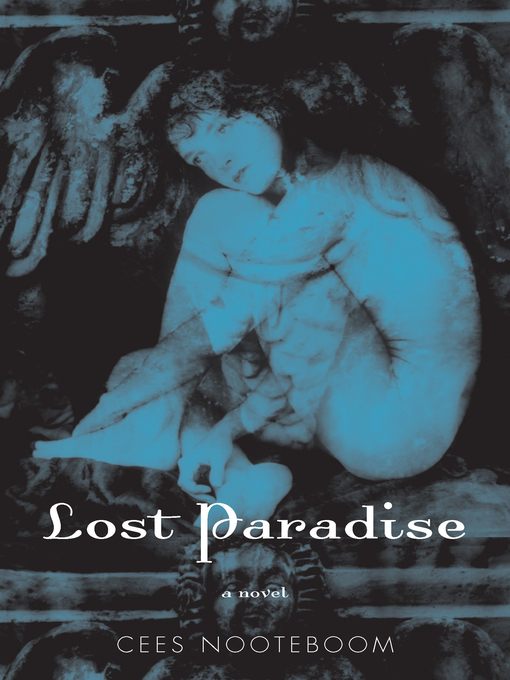
Lost Paradise
A Novel
- اطلاعات
- نقد و بررسی
- دیدگاه کاربران
نقد و بررسی

June 4, 2007
Eminent Dutch novelist Nooteboom (All Soul's Day
) weaves an imaginative tale of redemption from the intersecting lives of travelers. After surviving a gang rape in São Paulo, a young, affluent Brazilian woman, Alma, takes off for Australia with her best friend, Almut: the two plan to train as masseuses. Nooteboom then cuts to an embittered middle-aged critic, Erik Zondag, who is cast out of his home in Amsterdam by his fed-up younger girlfriend and sent to an Alpine spa in order to dry out and become a “different man.” The first part of the novel tracks the two Brazilians as they travel though Australia with hope of stopping at the legendary Aboriginal Sickness Dreaming Place. Their Australian adventures take a turn involving the Angel Project, a multisite piece of participatory art in Perth. For the second part, Eric endures a punishingly ascetic stay at the Alpine spa, where he recognizes his masseuse. Framed by masterful reflections on misunderstandings in life and literature, Nooteboom's short work, at once delicate and chiseled, achieves a dreamlike suspension of time and place.

August 1, 2007
This noted Dutch author's latest novel is thought-provoking and succinct, with vaguely surreal undertones. An author boards a plane; skims articles in an on-flight magazine about Brazil, Australian Aboriginal art, and small Austrian cities; daydreams about a female passenger; then writes part of an introduction for a book on angels. Out of these elements, a story seems to emerge. A wealthy young Brazilian woman named Alma survives a gang rape in the slums of São Paolo. Her best friend, Ahmut, accompanies her to Australia to help her forget the trauma. Alma has a brief, cold-blooded affair with an Aboriginal artist, after which she and Ahmut take jobs as angels, participating in an elaborate publicity stunt staged in Perth during an international writers' conference. Abruptly, the scene shifts to Erik Zontag, a Dutch literary critic, as he travels to Austria for a week of indulgent deprivation in a health spa, which leads to a surprising connection with the earlier narrative. Woven throughout the accessible text are reflections on travel, relationships, and the hollowness of postmodern life, played against Milton's "Paradise Lost". Highly recommended.Reba Leiding, James Madison Univ. Libs., Harrisonburg, VA
Copyright 2007 Library Journal, LLC Used with permission.

July 1, 2007
The world is a never-ending cross reference, claims one of Nootebooms narrators in a previous work. Here, a chance encounter between a melancholic young Brazilian woman, Alma, and a rut-stuck middle-aged Dutch literary critic, Erik, in Perth, Australia, provides the ibid for an exploration of longing for spirituality and connection. Alma, obsessed with angels, has come to Australia to exorcise a demon (she was gang-raped in a So Paulo favela); Erik has been lured by a free ticket to a literary conference. Both thoughtful and playful, this metafiction sometimes feels more like an essay than a novel, even spelling out the conclusion. But while Nootebooms observations about those who want to make themselves whole by borrowing wisdom from other cultures are canny, some readers may wish hed explore another issue, too: Alma is raped by a black cloud (after finding the favelas danger irresistible) and then seeks solace in the arms of an inscrutable Aborigineyet the significance of an earthy longing for the Other is ignored in favor of sublime desires. Fans of J. M. Coetzee should try Nooteboom, a major writer in Holland.(Reprinted with permission of Booklist, copyright 2007, American Library Association.)




دیدگاه کاربران